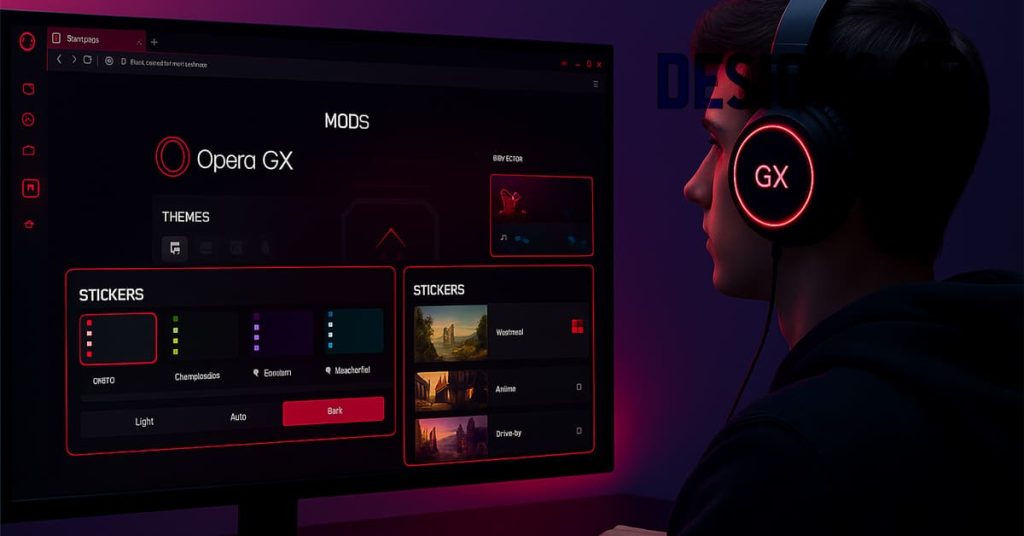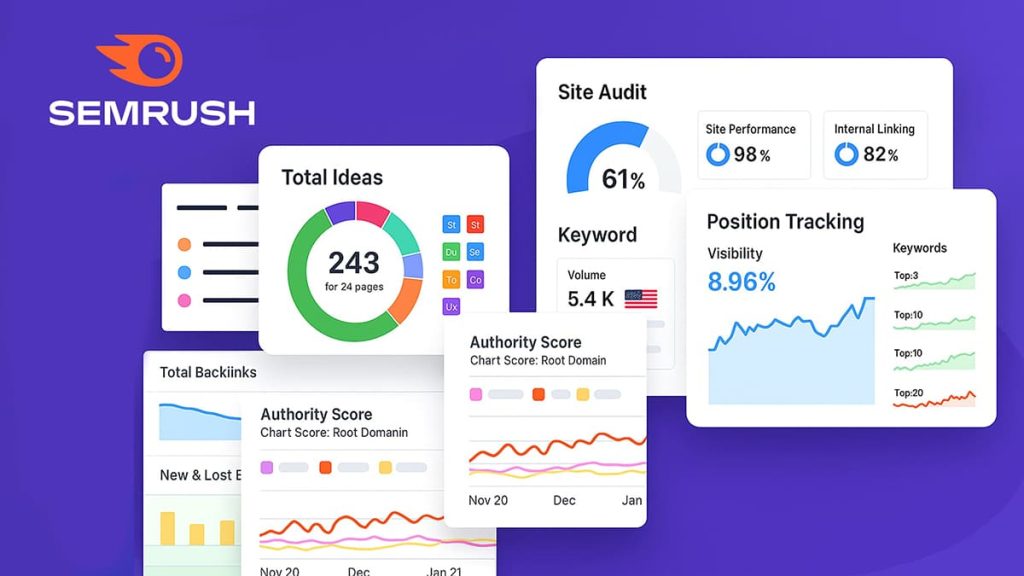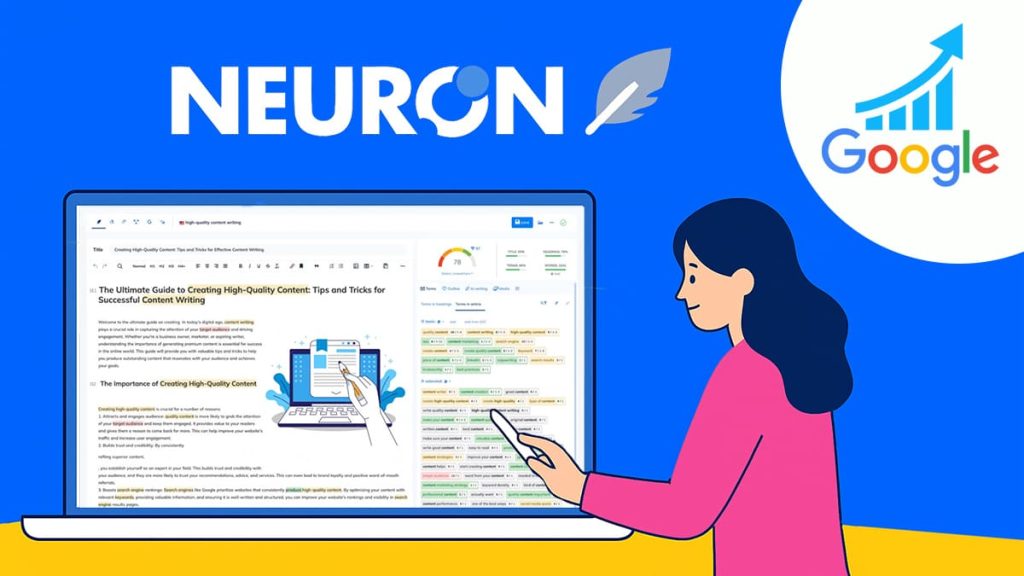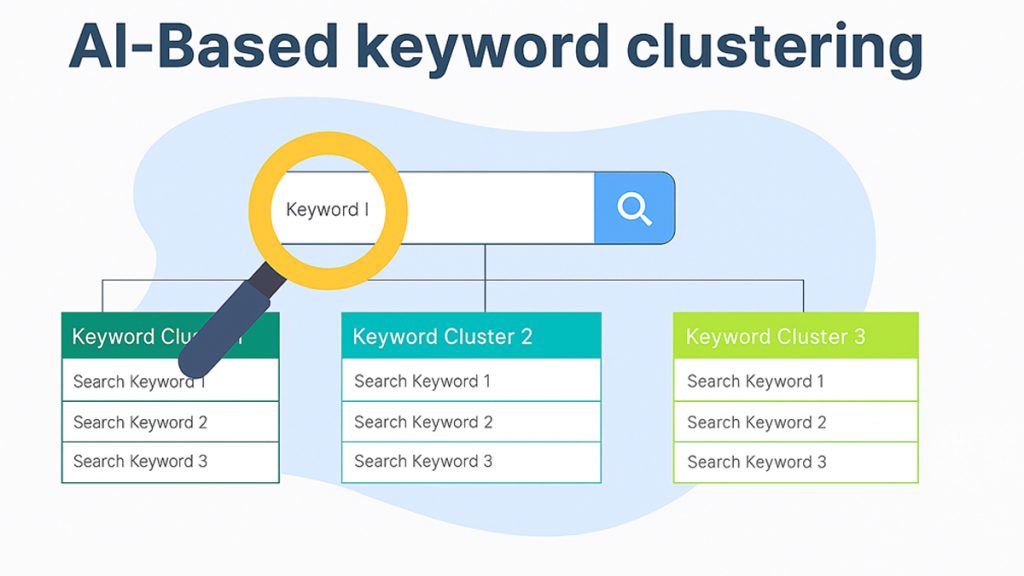Ever stared at a blank page, knowing you’ve got to write something that *actually ranks* but with zero idea where to start? Yeah, same here. SEO content isn’t just about slapping keywords into paragraphs anymore. It’s strategic, competitive, and… honestly, kind of a grind if you’re doing it all manually.
That’s where NeuronWriter caught my attention. I wasn’t expecting much at first just another AI tool, right? But once I saw how it breaks down SERPs, builds briefs, and scores your content in real-time, it felt less like software and more like a helpful teammate. In this article, I’m walking you through how I use it to write faster, rank better, and save a bit of my sanity along the way.
AI-powered SEO auditing made simple
I still remember the first time I tried to manually reverse-engineer top-ranking content. Dozens of tabs open, scattered notes, trying to connect the dots between structure, headings, and keyword frequency, exhausting. That’s when NeuronWriter entered the picture and completely reframed my process.
Analyze top SERP competitors instantly
NeuronWriter starts strong by diving into the top 30 Google results for your target keyword. Instead of juggling pages and running manual comparisons, it presents a consolidated overview: common headings (H2s and H3s), average content length, and keyword usage patterns. It’s like having a bird’s-eye view of what Google already favors, but filtered through a focused SEO lens.
With this real-time SERP analysis, I can immediately identify structural trends and thematic gaps. One click, and I see how my competitors frame their ideas, what subtopics they emphasize, and which keywords seem to drive their visibility. It’s quick, actionable, and, frankly, addictive.
Real-time content score & NLP optimization
Once inside the editor, the content score becomes your guiding light. It updates dynamically as you write, scoring based on keyword integration, structure, headings, and meta elements. But what really sets it apart is the NLP-driven term suggestions, NeuronWriter nudges you toward adding relevant semantic terms, not just your core keyword.
This isn’t stuffing. It’s thoughtful optimization, guided by linguistic patterns from top-performing content. It reminds me a lot of what I explored in Automated SEO strategies with AI: save hours every week, where I broke down how tools like this streamline optimization without sacrificing quality.
Write smarter with a streamlined AI workflow
There’s a certain magic in sitting down to write and not starting from a blank page. That’s one of the biggest time-savers NeuronWriter brought into my routine, structure before style, clarity before creativity. With its AI tools, content planning becomes less about guesswork and more about momentum.
Content brief generator + template system
One of my favorite features is the brief generator. It takes a keyword, analyzes the SERP, and produces a content brief that outlines exactly what should be included to compete. We’re not talking generic advice, it’s based on real competitor data, adapted to your niche.
Add to that the library of smart templates. Whether I’m writing a product page, crafting a blog intro, or outlining a full piece, the system provides reusable formats that actually make sense.
- Intro templates that balance clarity and SEO without sounding robotic
- Product copy frameworks for value-driven feature descriptions
- SERP-informed outlines that reflect top-performing structures
It’s the kind of setup that feels built for marketers who need both speed and flexibility.
Built-in writing assistant
Then comes the writing itself. NeuronWriter’s assistant uses the context from your brief to generate relevant paragraphs, no tone mismatch, no awkward sentences. I’ve used it to kickstart first drafts when time was tight, especially during fast turnarounds.
And the control stays in your hands. You can accept suggestions, tweak tone, or rewrite entirely, but the heavy lifting is already done. That’s something I also touched on in How to create SEO reports automatically using AI, where automation frees up brainspace without removing creativity.
Real results for bloggers and marketers
NeuronWriter didn’t just change how I work, it changed what I expect from SEO tools. Before it, content optimization felt like a slow uphill climb. Today, I move faster, write better, and track real progress with far less effort.
What struck me first was the time saved. Instead of manually analyzing competitors or guessing at structure, everything I need is right there. I can scan the SERP, draft with guidance, and see how my content stacks up, all in one interface. On average, I’ve cut my writing and optimization time in half. That’s not theoretical, it’s what I experience weekly.
But more importantly, the rankings follow. One article in particular had been stuck on page two for months. With NeuronWriter’s help, I revamped it in a single afternoon. Two weeks later, it hit the top 10, and has stayed there since. It’s these kinds of wins that make this tool a true companion for marketers and bloggers who want results without the usual grind.
If you’re juggling deadlines, trying to beat the algorithm, and still want your content to sound like ‘you’, NeuronWriter brings a lot to the table. It’s not perfect (no tool really is), but the way it blends structure with creative control? That’s what won me over maybe it’ll do the same for you.








